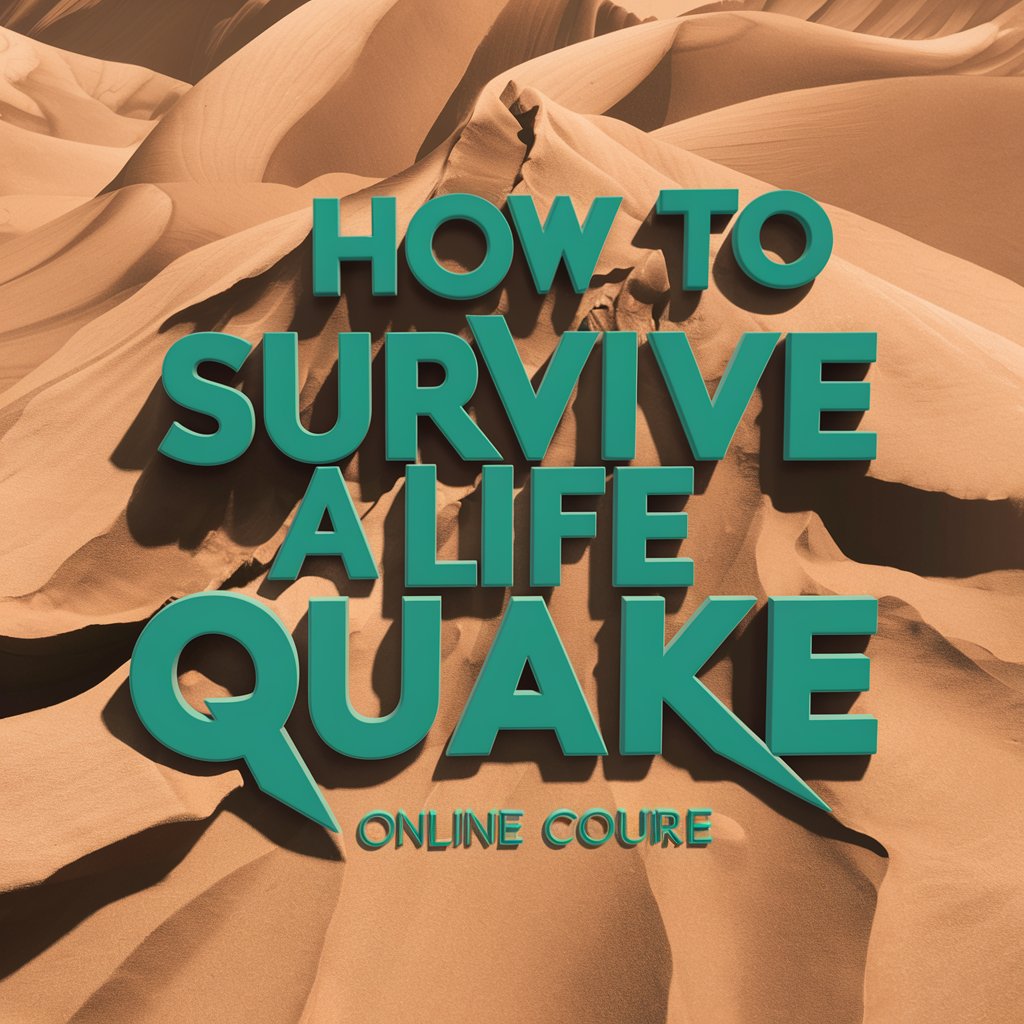Explore the mindset shifts that empower entrepreneurs to confront obstacles with confidence.
Definition of Entrepreneurial Courage
If you are thinking about leaving the corporate world and starting a profitable business, you are going to need wheelbarrows full of courage. Ask me, I should know. I have been running my Camino de Santiago walking retreat business for more than a decade, and I am now adding online courses to my portfolio. You may be thinking “But what exactly IS entrepreneurial courage?”
Entrepreneurial courage is the physical, mental, and spiritual strength to face the inherent fears, uncertainties, and challenges that come with entrepreneurship, all while staying true to your core values. It means showing up with confidence and determination, even when the path ahead is unclear or intimidating.
In practical terms, entrepreneurial courage is about:
- Taking risks: Investing time, money, and energy into ideas without guaranteed success.
- Making bold decisions: Saying no to opportunities that don’t align with your vision, or pivoting your business in a new direction when needed.
- Honouring your values: Building a business that reflects your principles, even when it might be easier to follow trends or compromise for short-term gains.
- Facing fears: Overcoming impostor syndrome, addressing conflicts, or stepping into public roles like networking or speaking engagements, especially challenging for introverted business owners.
- Persevering through setbacks: Learning from failures, adapting to challenges, and continuing to move forward when the going gets tough.
Entrepreneurial courage is not the absence of fear but the choice to move forward despite it, driven by a belief in your purpose and the value you bring to others. It’s about staying resilient in the face of uncertainty.
Everyday Acts of Courage
- Saying “sorry” when you’ve made a mistake.
- Being authentically yourself, even if it means standing out.
- Taking responsibility for your actions and their consequences.
- Setting and pursuing challenging personal or professional goals.
- Saying “no” to requests that don’t align with your values or priorities.
- Forgiving someone who has hurt you deeply.
- Helping others, even when you’re struggling yourself.
- Choosing to be kind and compassionate, even in difficult situations.
- Practicing gratitude, especially during challenging times.
- Actively listening to others, especially those with different perspectives.
Different Types of Courage
- Physical Courage: This is the most traditional form of courage, characterized by the willingness to face bodily harm or death. It involves acting despite fear in situations where physical danger is present, such as confronting an attacker or participating in extreme sports.
- A firefighter entering a burning building to rescue trapped occupants.
- A person learning to skydive despite their fear of heights.
- A cancer patient undergoing painful treatments to fight the disease.
- Social Courage entails the ability to face social risks, such as embarrassment, rejection, or exclusion. This type of courage is crucial for leadership and involves being true to oneself in challenging social situations.
- Speaking up in a meeting to present an unpopular but necessary idea.
- Asking someone out on a date, risking rejection.
- Standing up to a bully at school or in the workplace.
- Moral Courage is about standing up for one’s beliefs and values, especially when doing so may lead to personal loss or disapproval from others. It involves making ethical decisions and acting in accordance with one’s principles, even under pressure.
- A whistleblower exposing corporate wrongdoing, risking their career.
- Refusing to participate in unethical business practices, even if it means losing a job.
- Intervening when witnessing discrimination or harassment in public.
- Emotional Courage: This type of courage allows individuals to experience a full range of emotions, including vulnerability and fear. Emotional courage is essential for personal growth and happiness, as it encourages openness to both positive and negative feelings.
- Opening up to a therapist about past traumas.
- Expressing vulnerability and sharing feelings with a partner.
- Confronting a family member about a long-standing issue.
- Intellectual Courage involves the willingness to engage with new ideas, challenge one’s own beliefs, and accept the possibility of being wrong. It requires an open mind and a readiness to learn from mistakes.
- Engaging in respectful debates with people who hold opposing views.
- Admitting when you’re wrong and changing your stance based on new information.
- Pursuing education in a field completely different from your current expertise.
- Spiritual Courage helps you confront profound questions about faith, purpose, and existence. It supports the pursuit of meaning in life, whether through religious beliefs or philosophical inquiry.
- Questioning long-held beliefs and exploring new spiritual paths.
- Sharing your faith or lack thereof in environments where it might be unpopular.
- Making difficult life choices based on your spiritual convictions.
The Types of Courage You Need to Start a Business
Starting a business requires different types of courage, each playing a crucial role in the success of your business:
- Social Courage: It is essential for entrepreneurs to be themselves unapologetically to stand out in the business world. For example, it involves speaking up to present your ideas and asking for support or investment despite the risk of rejection.
- Moral Courage: Entrepreneurs often face ethical dilemmas and must have the strength to do what’s right, even when it’s uncomfortable or unpopular. This could involve refusing to participate in unethical business practices, even if it means losing potential profits or partnerships.
- Emotional Courage: Starting a business is an emotional rollercoaster. Entrepreneurs need to accept and process both positive and negative emotions without guilt or attachment. This includes opening up about challenges and expressing vulnerability when seeking advice or support.
- Intellectual Courage: The business world is constantly evolving, requiring entrepreneurs to learn, unlearn, and relearn with an open and flexible mind. This involves admitting when you’re wrong and changing your stance based on new information.
- Physical Courage: While not always involving bodily risk, physical courage in entrepreneurship means persevering through long hours, stress, and potential health impacts to keep the business going.
- Spiritual Courage: This involves living with purpose and meaning, approaching business decisions with a heart-centered approach. It’s about questioning long-held beliefs and making difficult choices based on your convictions.
Entrepreneurs must be willing to take risks without any guarantee of success. As I mentioned in the definition, courage isn’t the absence of fear; it’s acknowledging fear and moving ahead anyway, knowing that along the way, you’ll be able to master the necessary skills to achieve your goals.
Strategies to Develop Entrepreneurial Courage
Generating the courage to take risks in your business is a crucial aspect of entrepreneurial success.
- Start small: Begin by taking calculated, smaller risks to build your confidence gradually. As you experience success with these smaller risks, you’ll feel more comfortable tackling larger ones.
- Understand that not all risks can be predicted or controlled. Be willing to step out of your comfort zone and navigate through uncertain situations, as this can lead to innovative solutions and growth opportunities.
- Analyse mistakes, identify areas for improvement, and adjust your strategies accordingly. View failures as valuable learning experiences that refine your risk-taking abilities.
- Cultivate emotional resilience: Work on bouncing back from setbacks and maintaining a positive outlook through challenges.
- Seek support: Prepare your employees, partners, and investors for potential difficulties. Having a strong support system can make it easier to face risks.
- Focus on your vision: Remember your ultimate goals and the reasons you started your business. This can provide motivation and courage when facing risks.
- Continuously educate yourself: Stay informed about your industry, market trends, and best practices. The more knowledge you have, the more confident you’ll feel in taking calculated risks.
- Adopt a growth mindset: A growth mindset is an entrepreneur’s secret weapon: it helps you to raise the courage needed to face challenges, take risks, and persist in your venture.
- Entrepreneurs with a growth mindset view challenges as opportunities for learning and development rather than insurmountable obstacles. This perspective enables you to approach difficult situations with determination.
- A growth mindset helps you see failures as temporary setbacks and learning experiences rather than permanent defeats. This resilience allows you to bounce back from failures and continue pursuing your goals with renewed courage.
- Those with a growth mindset believe that abilities can be developed through dedication and hard work. This belief encourages entrepreneurs to put in the necessary effort to improve their skills and knowledge, boosting their confidence and courage to take on new challenges.
- Entrepreneurs with a growth mindset are more likely to view feedback and criticism constructively, using it to improve their strategies and approaches. This openness to learning enhances your ability to adapt and innovate courageously.
- Rather than feeling threatened by others’ achievements, those with a growth mindset are inspired by their competition. This perspective encourages you to courageously pursue your goals and aspirations.
- Persistence in the face of uncertainty: A growth mindset provides entrepreneurs with the courage to persist in uncertain and challenging environments.
By cultivating a growth mindset, you can develop the psychological capital necessary to face the risks and uncertainties inherent in entrepreneurship. This mindset enables you to approach challenges with courage, learn from failures, and continuously adapt and improve, ultimately contributing to your success and satisfaction in your entrepreneurial journey.
Lesser-known Courageous Female Entrepreneurs who have made a Significant Impact
If you need some inspiration:
- C.J. Walker: Born to former slaves, she became one of the first American women to become a self-made millionaire. Her line of beauty and hair products for black women was revolutionary in the early 20th century.
- Reshma Saujani: Founder of Girls Who Code, Saujani identified a critical gap in the tech industry and took innovative action to change it. She has empowered over 10,000 girls to enter the male-dominated field of technology, challenging industry norms and inspiring a new generation of tech leaders.
- Ursula Burns: Starting as a summer intern at Xerox, Burns rose to become the first Black woman to lead a Fortune 500 company. Her journey from an NYC housing project to CEO showcases remarkable perseverance and courage in breaking barriers in corporate leadership.
- Sara Blakely: Founder of Spanx, Blakely went from being a fax machine salesperson to creating a widely successful undergarment company. Her perseverance and problem-solving skills have made her one of the most successful female entrepreneurs.
- Katrina Lake: Founder of Stitch Fix, Lake became the youngest female founder to lead an IPO in 2017. She identified an opportunity in the changing retail industry and built a widely loved online personal-shopping service.
- Rachel Mielke: Founder of Hillberg & Berk, Mielke stands out for her work in empowering other women. Her jewelry brand has made significant charitable contributions and maintains a predominantly female workforce.
- Mary Kay Ash revolutionised the beauty industry with her innovative business model and exceptional leadership skills. She empowered women by creating job opportunities and promoting them to leadership positions.
These entrepreneurs have not only achieved remarkable success but have also paved the way for future generations of women in business, demonstrating courage in breaking barriers and creating innovative solutions in their respective industries.
By implementing the strategies I discussed above, you can gradually build the courage needed to take risks in your business, leading to greater innovation, growth, and success.
When we least expect it, life sets us a challenge to test our courage and willingness to change; at such a moment, there is no point in pretending that nothing has happened or in saying that we are not yet ready. The challenge will not wait. Life does not look back. A week is more than enough time for us to decide whether or not to accept our destiny.
Paulo Coelho
References:
Kristi Bockorny, Carolyn M Youssef-Morgan, Entrepreneurs’ Courage, Psychological Capital, and Life Satisfaction Front Psychol. 2019 Apr 5;10:789 PMCID: PMC6461011 PMID: 31024410
Baron R., Franklin R., Hmieleski K. (2016). Why entrepreneurs often experience low, not high, levels of stress: the joint effects of selection and psychological capital. J. Manag. 42 742–768. 10.1177/0149206313495411
Fairlie R. (2007). “Entrepreneurship among disadvantaged groups: women, minorities and the less educated,” in The Life Cycle of Entrepreneurial Ventures, ed. Simon P. (New York, NY: Springer; ), 437–475. 10.1007/978-0-387-32313-8_15
Does it take courage to start a business?

Author Bio: Dr Margaretha Montagu – described as a “game changer”, “gifted healer”, “guiding light” and “life-enriching author” – is an experienced medical doctor, a certified NLP practitioner, a medical hypnotherapist, an equine-assisted psychotherapist (EAGALAcertified) and a transformational retreat leader who guides her clients through life transitions – virtually, or with the assistance of her Friesian and Falabella horses, at their home in the southwest of France.
Imagine having a survival toolkit ready next time you’re hit by a life-shattering transition. When you subscribe to my Savoir Vivre Vignettes newsletter, you get FREE access to my How to Survive a Life Quake 7-part online course (valued at €79). This isn’t just another online course; it’s a heartfelt made-with-love guide packed with tools to help you face and thrive through life’s transitions with resilience. I’d love for you to join our community!


